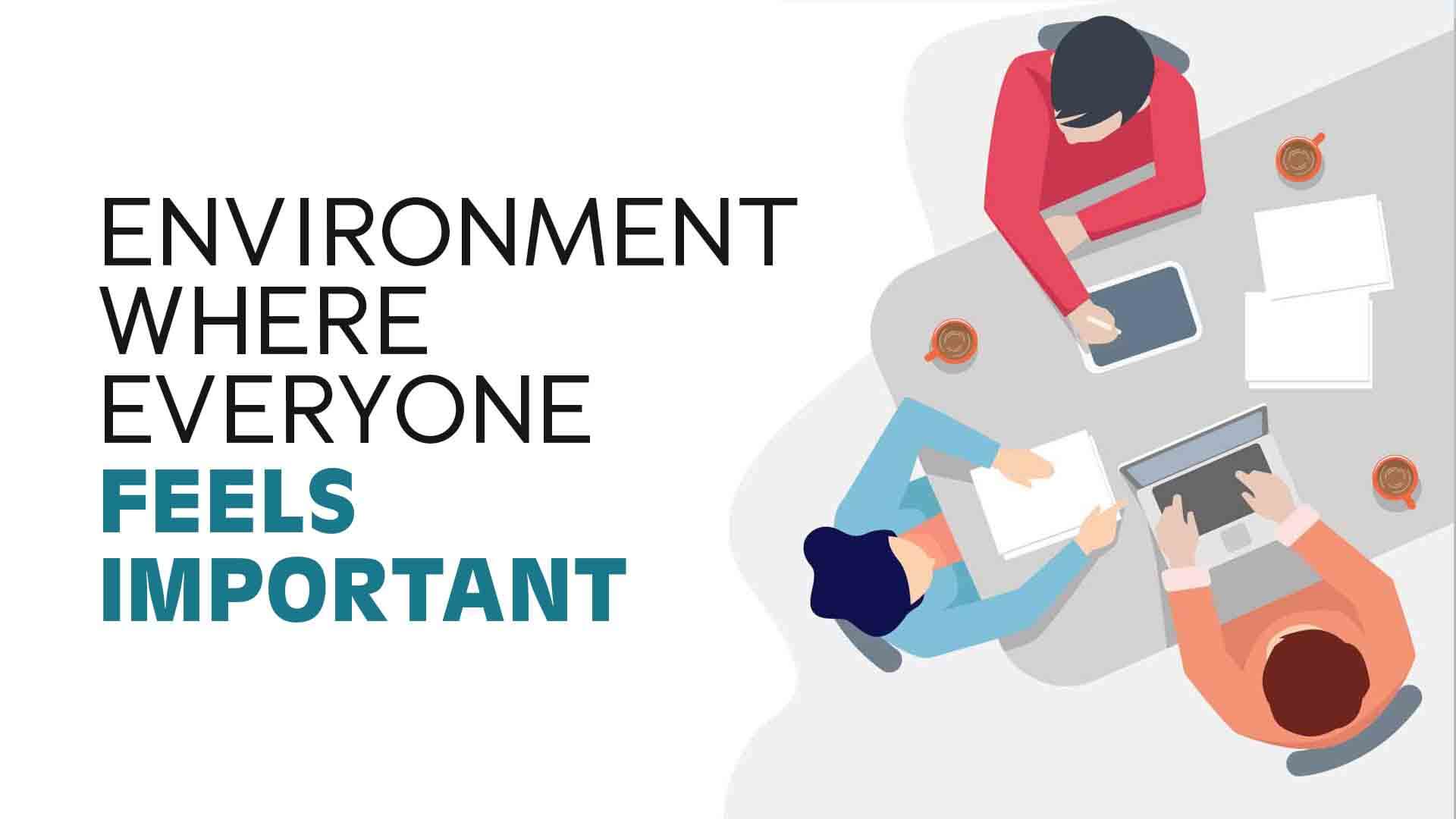Building a good environment is important to create the right workplace and produce the best results. In a productive environment, everyone is involved and willing to help. But to achieve this, we first need to help them and make them feel like they can do it and get them motivated enough to start.
Involve others in the big decisions
The first thing to do is to make sure other people are part of the big decisions. Even if you are the one who will ultimately make them, others should be able to offer advice, input, and ideas.
Do not approach other people in an inauthentic way. Genuinely listen to what they offer because it can help you make better choices. Keep people informed about what is going on and why things are happening in a certain way. Give them the chance to buy into your ideas and choices.
Point out small details
Paying attention to small details is a good way to show people that you are truly paying attention to them. It shows that you find them important and remember the things they say and do.
Details might include things about their personal lives or particular likes and dislikes. It can include elements of their work or their contributions to a project. Make sure you listen to people carefully. If you need to, jot down the elements that seem worthwhile and might be important to remember later. Take opportunities to bring them up.
The idea is once again not to be inauthentic as you do it, but in trying to take a closer interest in the people around you and showing them that you do listen and care.
Check on people
The next thing to keep in mind is that you can check in on people periodically to see how things are going. Don’t disappear and don’t be a distant presence in their daily lives. You should definitely make appearances on the regular and ask meaningful questions.
Checking in can be as simple as asking someone how they are or following up on the new project. You might ask what has gotten done and whether they need help with something specific. Make sure you are available.
Give others autonomy
At the same time, you should not be always hovering behind people’s backs. Micromanagement is a stressful experience in many environments and can put people off.
You should give people the autonomy to make their own choices and act within their roles as much as possible. Autonomy is highly motivating for people because it allows them to make choices and helps them feel in control. We are all more interested in the things that we get to decide about, and without autonomy, it’s hard to get invested in anything.
Be clear about goals and expectations
You probably expect some things from the people around you. Make sure they know what you expect and how they can achieve it. Unclear goals make people feel confused and worried, so it leads to a lack of motivation as well.
Expectations need to be outlined, because that way everyone is on the same page. It is important that people know how to achieve your goals and are not left floundering or expecting criticism for what they have done. If there are no clear expectations or goals, try to focus on elements like values and priorities: what is the most important thing to focus on now? Leave people with a guide to start and continue their work.
Expect that people will mostly be trustworthy
If you want people around you to be good and perform well, expect this from them. Don’t treat them as if you expect the worst, because those things become more likely.
Believe that most people are interested in being good and doing good work, unless they have proven to you that this is not so. It might seem overly trusting, but you will find that many people will respond to it positively. Of course, you do not have to give second or third chances, but you might try approaching situations by extending people the benefit of the doubt about their intentions, ideas, and decisions.
Creating a positive environment will have many benefits for everyone involved. Having people feel invested and engaged can lead to amazing results in whatever work they do.

